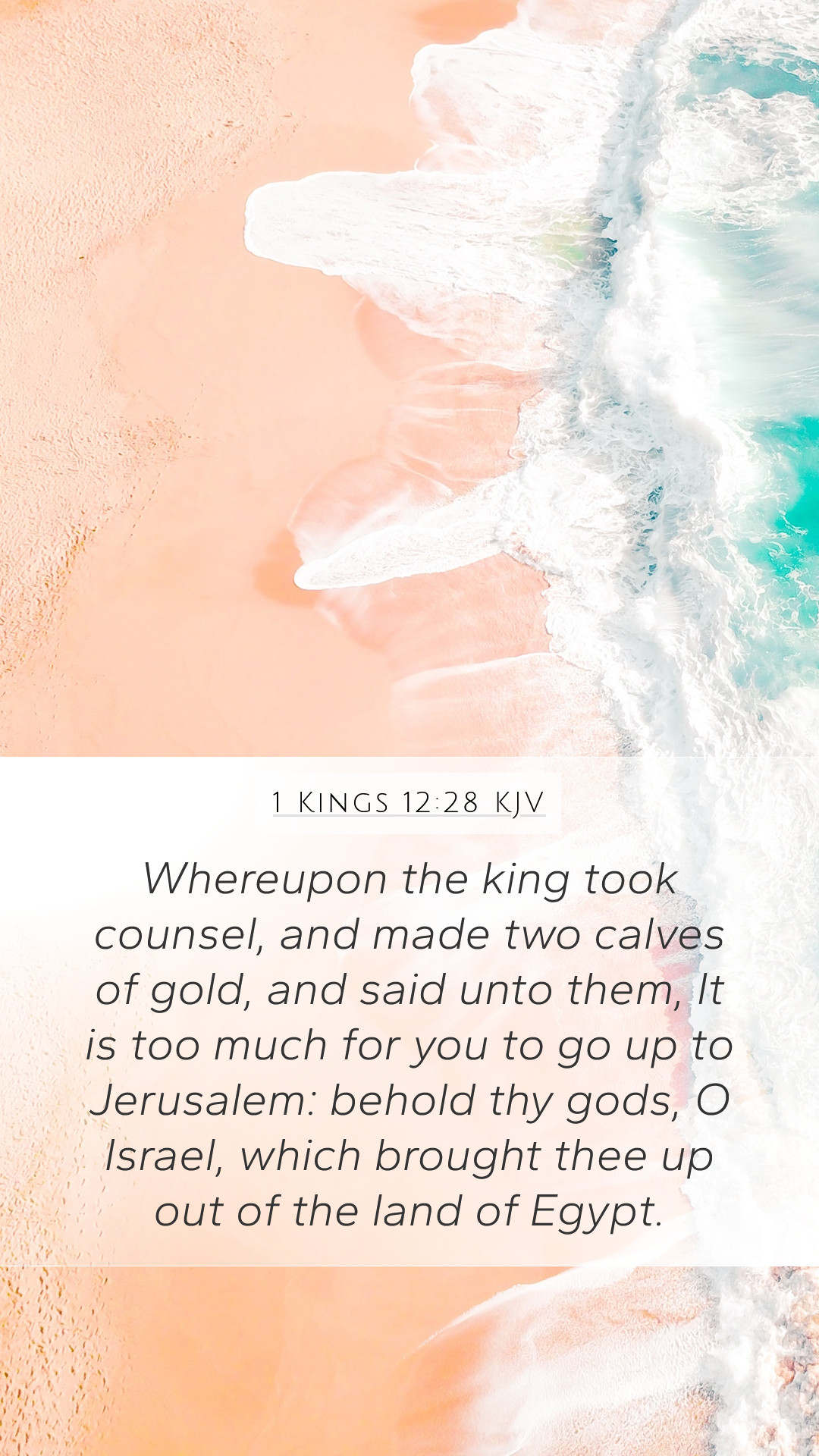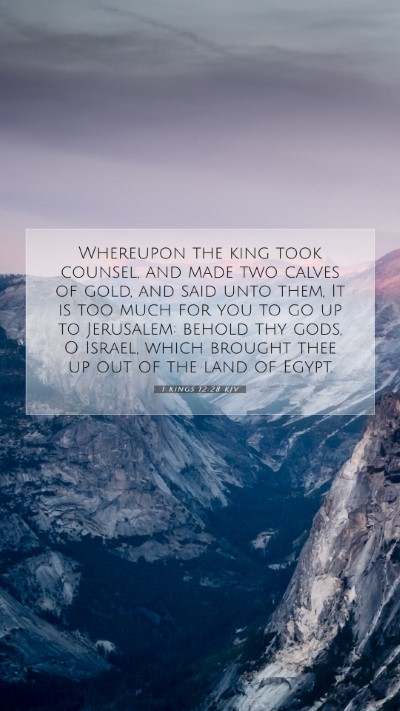Bible Verse Commentary on 1 Kings 12:28
Verse: 1 Kings 12:28 - "Whereupon the king took counsel, and made two calves of gold, and said unto them, It is too much for you to go up to Jerusalem: behold thy gods, O Israel, which brought thee up out of the land of Egypt."
Introduction
This verse presents a significant moment in Israel's history, specifically in the reign of King Jeroboam. Understanding its implications requires a careful analysis of the context, the actions taken by Jeroboam, and the spiritual ramifications for the people of Israel.
Bible Verse Meanings
The act of creating golden calves by Jeroboam represents a pivotal moment in Israel's disobedience to God's commandments. Commentary by Matthew Henry emphasizes the folly of turning to idolatry, as this decision not only disregards the worship prescribed by the Law but also reflects a deep-seated rebellion against God's authority.
Albert Barnes notes that this was a strategic move by Jeroboam to consolidate his power and prevent his subjects from traveling to Jerusalem, thus safeguarding his kingdom from potential loyalty shifts back to Rehoboam's reign.
Adam Clarke points out that Jeroboam’s actions betray a profound misunderstanding of God's nature and a rejection of authentic worship, leading the nation further into spiritual darkness.
Contextual Analysis
Upon ascending to the throne, Jeroboam faced the challenge of managing a divided kingdom. This led to the introduction of alternative worship practices, which steered the people away from true worship in Jerusalem, as articulated in scripture.
-
Historical Context: The division of the Kingdom of Israel after Solomon’s reign set the stage for Jeroboam’s decisions. The political landscape was fraught with tension, compelling Jeroboam to act in ways that contradicted God's commands.
-
Spiritual Ramifications: This incident marks a critical downturn in Israel's spiritual journey, where idolatry takes root, influencing the nation for generations to come.
Idolatry and its Consequences
Jeroboam’s creation of the golden calves highlights the danger of leading others into sin. As per Matthew Henry, it signifies how leaders can influence the faith of their people either positively or negatively. Barnes further illustrates the notion of compromise in worship and the dire consequences that follow. The move to construct idols had severe consequences for Israel, leading them away from the covenant established with God.
Interpreting Jeroboam's Motives
Commentators suggest that Jeroboam’s decision was rooted in fear—fear of losing his kingdom. This fear led him to create a false sense of security and a false religion to appease the people. Clarke emphasizes this motivational aspect, arguing that such anxiety can lead individuals or leaders to make desperate but ungodly choices.
Applying Scripture to Daily Life
1 Kings 12:28 serves as a poignant reminder of the importance of righteous leadership and the perils associated with turning away from divinely prescribed worship. For modern believers, this verse speaks to the necessity of prioritizing authenticity in spiritual practices and remaining vigilant against temptations to conform to societal norms that contradict biblical truth.
Cross References
- Exodus 32:1-4 - The creation of a golden calf by the Israelites at Mount Sinai.
- 1 Kings 14:9 - Further condemnation of Jeroboam's actions and their consequences.
- 2 Kings 17:16-18 - Discusses the eventual exile and judgment upon Israel for their idolatry.
Conclusion
In summary, 1 Kings 12:28 serves as a vivid illustration of the theological and moral pitfalls that can arise from disobedience to God. The insights of Matthew Henry, Albert Barnes, and Adam Clarke collectively enhance our understanding of this pivotal event in Israel's history and its repercussions that still resonate today.


